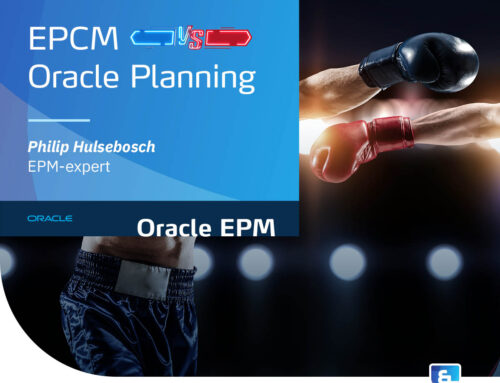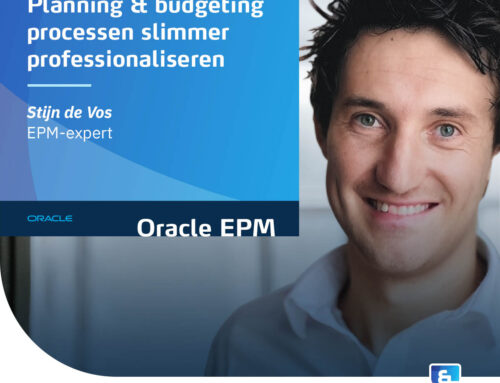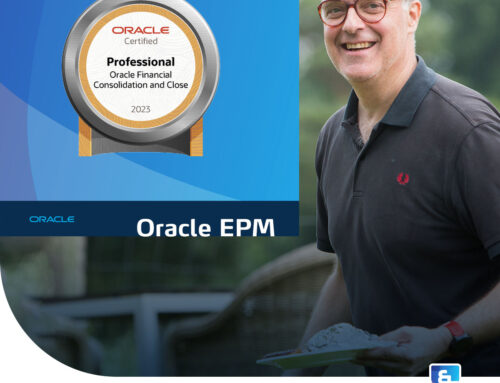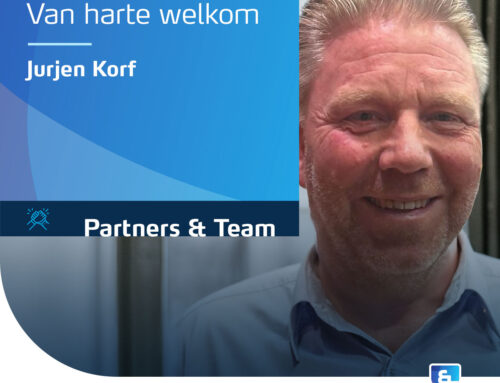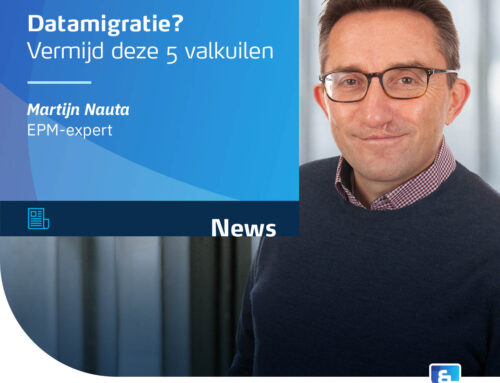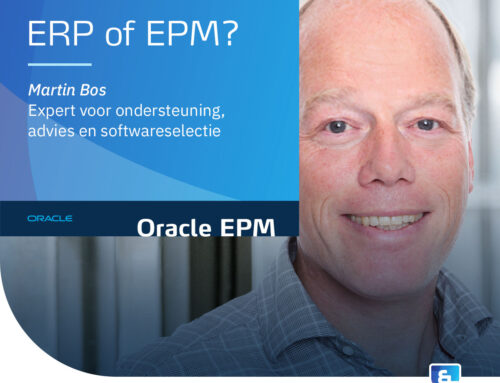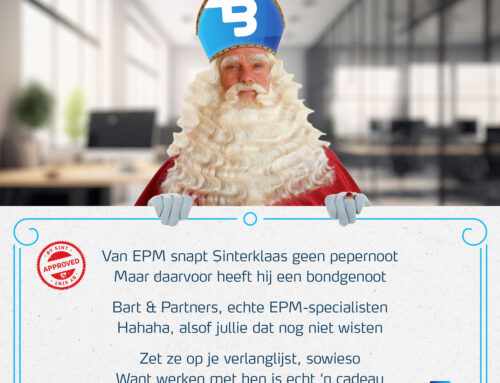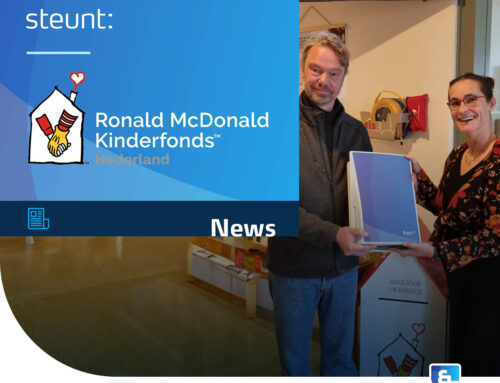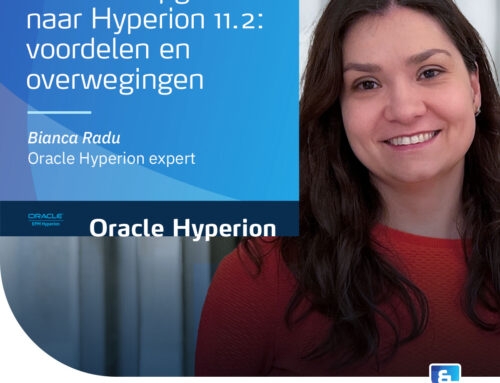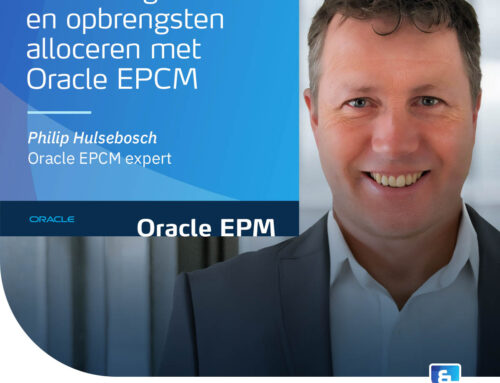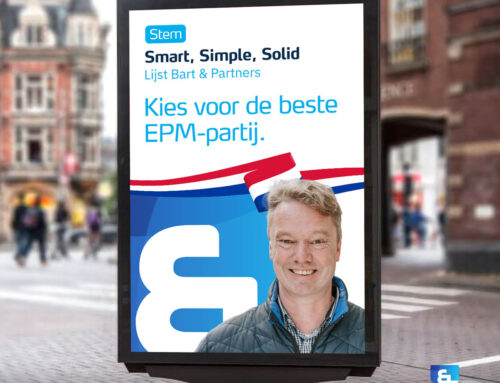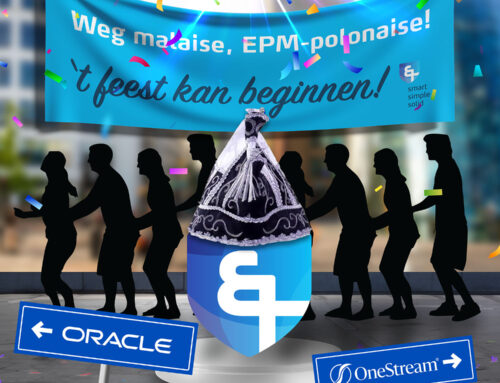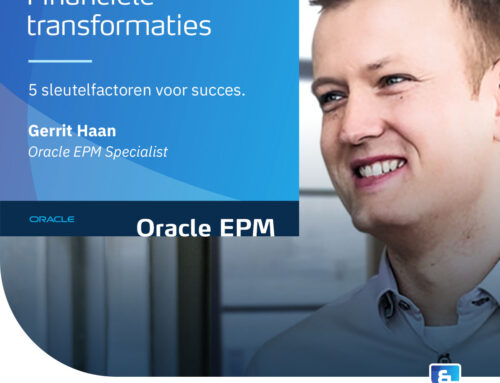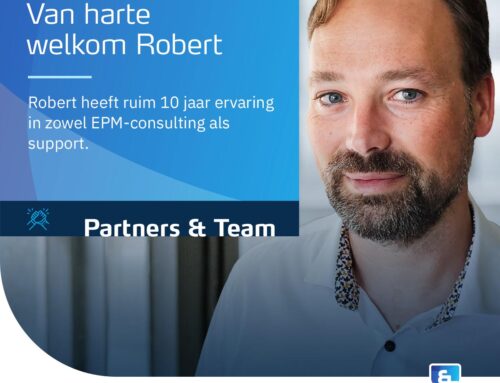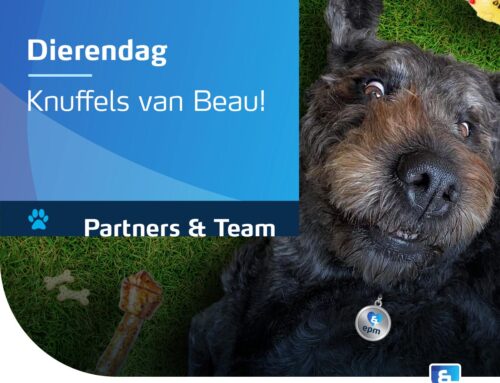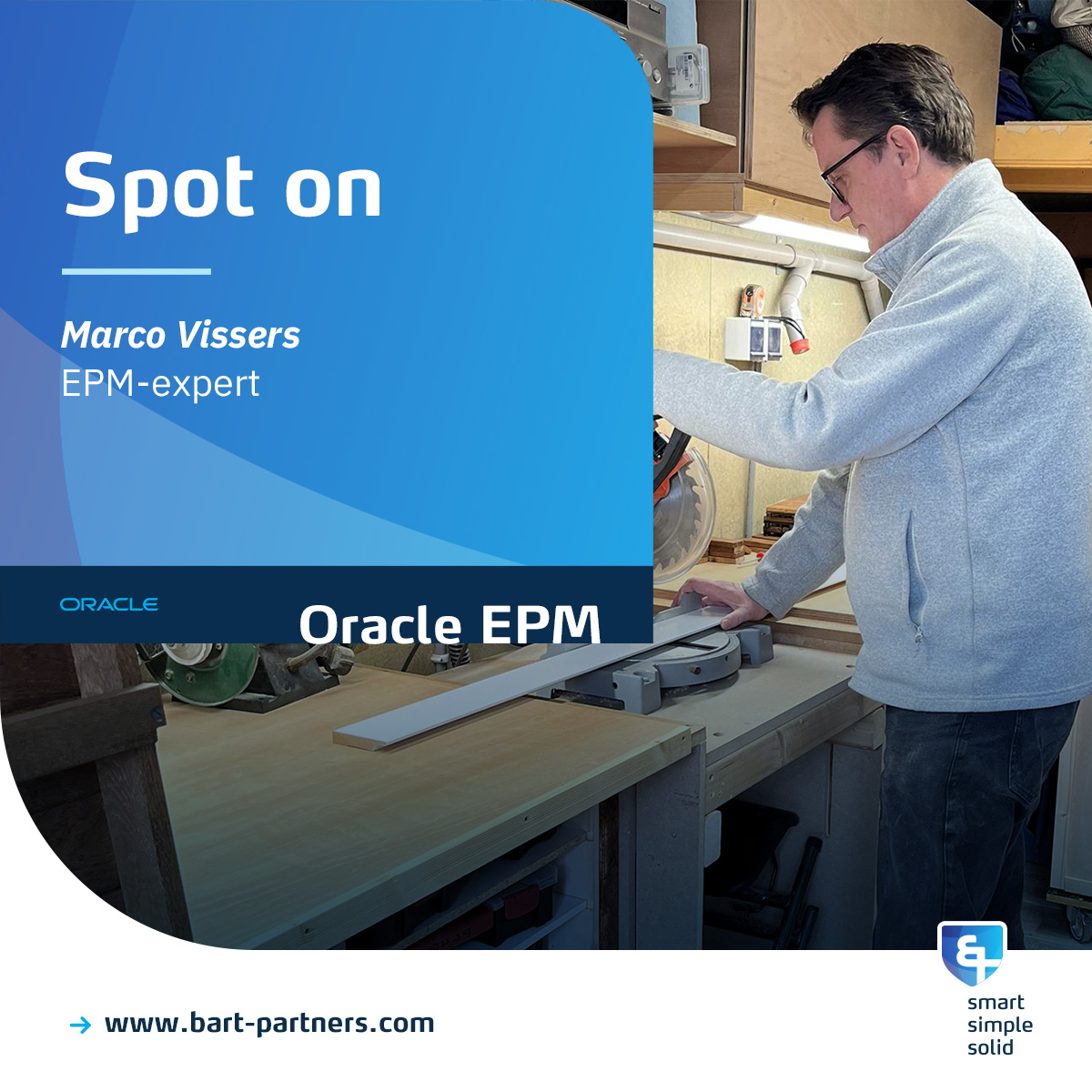
In conversation with MarcoVissers8Minutes estimated reading time
The Commodore 64. That's where it all started. He was one of the first to own one. Since then, EPM expert Marco Vissers has been caught by the 'computer virus'.
Marco is therefore the textbook example of someone who has made his hobby his job. An EPM specialist with an enormous hunger for knowledge. A real team player too. How did his EPM journey go? How does he deal with new developments? And what does Marco find important in his daily work? You can read it in this interview.
How did your EPM journey begin?
I first came in contact with the world now called EPM in '96. That was at Fortis Corporate, where I went to work for the consolidation department. I was the application manager and maintained the applications worldwide. In 2000, I really got into consulting, at Partake Consulting.
You have an IT background?
Yes, I once started as a programmer at Amev, the insurance company in Utrecht. That was in '91. I never finished my automation training, but did pass the psychotechnical test. After that I was hired.
That you did not have a college degree in your pocket was not an objection?
True, I only have a VWO degree. But I was handy with IT and had a lot of affinity for computers and programming. That was ingrained in me from an early age. As a child, I was one of the first to own a Commodore 64. That's where it all started, I think.
By now we are more than 30 years on and you are a seasoned EPM consultant. What do you think are the most important competencies you must have for your profession?
The most important thing is that you understand IT and speak the language of finance. It is precisely at this interface between the two worlds that the strength of our consultants lies. I myself have a technical background. But I have always worked for finance departments and this has given me a feeling for finance and numbers.
Do you have a specialty?
My specialty is master data management. I have been working on this since 2005, when I was still at Partake Consulting. At the time, the market was not ready for it. But now you see more and more interest and traction in this area.
In master data management, it is important to have a good understanding of how all the modules in the EPM landscape relate to each other. Another specialty is data integration, which is an outgrowth of master data management.
What do you see as the most important challenge in your profession?
Continuously keeping up with new developments. Always staying ahead. Being just one step ahead.
What kind of developments are we talking about?
Mostly it's about technological developments. New features in the software that offer new possibilities or make things easier or better for the customer.
But it may also involve other developments. For example, the ESG reporting requirement is coming. Large companies will soon have to start collecting all kinds of non-financial data. For that reason, Oracle will soon come out with a new tool within its EPM suite that will allow ESG reporting.
I can't wait to get started on that. I think this is right up my alley, given my IT and data migration background. Because even at ESG, data collection is the most important thing. How do I get that data? Where do you get it?
How do you do that, keep up with all these developments?
Among other things, I follow a lot of webinars. I attend them all, purely out of interest. I don't even think of it as work; it's almost my hobby. I have a huge drive to gain knowledge and then like to share that knowledge.
Colleagues can always come to me with questions. For me, that is the most important thing about the profession. Knowledge sharing and cooperation with colleagues.
Speaking of knowledge sharing and collaboration, how does that work at Bart & Partners?
Yes, that's going great. When I joined Bart & Partners, I already knew: there are a lot of years of experience there. And the best thing about that? I can always draw on it. No matter which colleague I call, everyone answers. Well, that's insane.
Isn't that normal then?
Not at where I came from, a large international consulting firm. There were over 100 people there. So I thought, wow, I have a huge knowledge base there. Well, that knowledge may have been there, but it wasn't accessible. Never.
Everyone was too busy with projects or didn't feel like answering for whatever reason. Very annoying.
I am happy to be at Bart & Partners now. There really is a team feeling here. Everyone is willing to share knowledge. For me, this cooperation with colleagues who have other areas of expertise is essential. Because that ensures that we complement each other and arrive at better solutions.
Where do you think that team spirit comes from?
First of all, there is real partnership within the company. We are all equal and that is important. There is no difference between colleagues who are salaried and colleagues who work with us as freelancers. Everyone is considered a full team member and behaves accordingly. This makes for a fantastic working atmosphere. I really didn't expect this beforehand, it exceeds my expectations.
Does it play into the fact that the team consists purely of experienced consultants?
Just having a mountain of experience is not enough. It's all about having the same DNA and forming a suitable match between people and with clients. Honesty is extremely important. You have to be honest with yourself and with the customer.
Being honest with the customer, what do you mean by that?
That you advise a client honestly and objectively. That's true partnership. For example, do we think Oracle or Onestream is too big for a customer? Then we just say so. Does a project or customer not suit us? Then we dare to say no. That independence and honesty appeal to me enormously. Because only then can you stand behind your work and deliver the best work.

